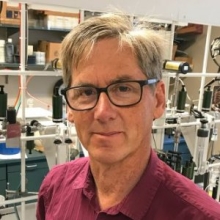CLEWS Seminar Series: Tracking Flows of Carbon at the Global Scale - What We've Learned from Atmospheric Measurements

Professor
Geosciences Research
Division of Scripps Institution of Oceanography
University of California, San Diego
Abstract: Fossil-fuel burning is the main cause of rising CO2 with a significant additional source coming from land use, such as conversion of land from one use-type to another. These sources are substantially offset by carbon sinks in the land biosphere and oceans, driven by the rise in CO2. Our understanding of these major scale carbon flows is limited, however, by several long-standing challenges. For example, the magnitude of land-use emission remains uncertain to at least a factor of two, much of the variability in CO2 occurring on interannual and decadal time scales is still not understood, and uncertainty in atmospheric circulation substantially impairs our ability to accurately quantify large-scale fluxes based on atmospheric measurements. Keeling will discuss the crucial topic of tracking flows of carbon at the global scale and how it impacts our planet. He will explain the complexities of our changing climate and the critical role that carbon plays in our environment.
Bio: Ralph Keeling is professor of geochemistry in the Geosciences Research Division of Scripps Institution of Oceanography, UC San Diego. His research focuses on atmospheric composition, the carbon cycle and climate change. He is considered a leading investigator of the global oxygen cycle for his precise measurements and analysis techniques. Keeling developed his method for measuring atmospheric oxygen levels utilizing interferometry techniques in the laboratory. He began pioneering measurements of changes in atmospheric oxygen levels from air samples collected at stations around the world. The measurements continue at nine sampling stations, extending from Ellesmere Island in northern Canada over the equator to two Antarctic stations. Measurements from his group show that the atmosphere O2 is decreasing at a small but measurable rate due primarily to the burning of fossil fuels. From 1991 to 2011, the atmosphere lost on average 19 out of every million O2 molecules in the atmosphere. Establishing this rate was a milestone for improving our understanding of the processes controlling the buildup of CO2 in the atmosphere.
Keeling received a bachelor's degree in physics, summa cum laude, from Yale University, and a doctorate in applied physics from Harvard University.
Hosts: Climate, Land, Energy, and Water Solutions (CLEWS) group. This the first seminar in a series.
Share
Upcoming Events
-
MSE 298 Seminar: Mechano-Electrochemical Phenomena at Ceramic Electrolyte Interfaces
-
MSE 298 Seminar: Innovation In Materials Science - An Industrial R&D Perspective
-
MSE 298 Seminar: Understanding the Impact of Grain Boundary Inclination on Grain Growth Using Modeling and Simulation and Experiments
-
EECS Seminar: Mixed Conductors for Bioelectronics
-
MSE 298 Seminar: Ionic Correlations in Polymer Nanostructures - From Block Copolymers to End-Charged Blends
